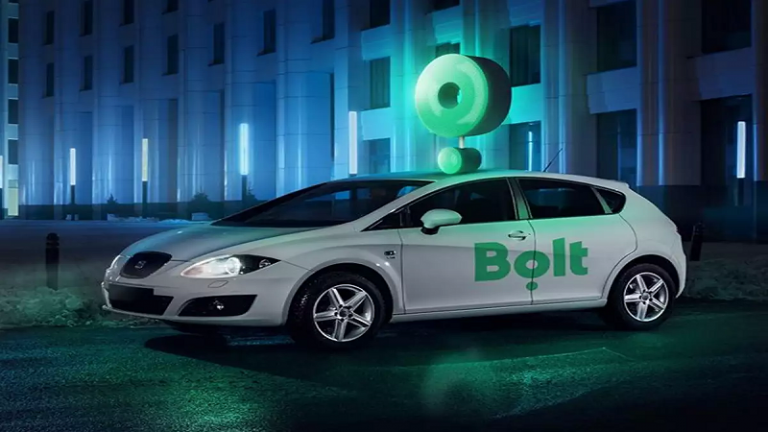
Ride-hailing startup, Bolt, has raised €628 million ($709 million), at a valuation of €7.4 billion ($8.4 billion) that will give it competitive edge and help it to expand to new markets.
The new investment round was co-led by Sequoia Capital, Fidelity Management and Research Company LLC, with Whale Rock, Owl Rock (a division of Blue Owl), D1, G Squared, Tekne, Ghisallo and other unnamed backers also participating.
In nearly a decade since it was founded, the Estonia-based company has onboarded many services such as shared cars and scooters, restaurant and grocery delivery, and Bolt Market – its 15-minute grocery delivery feature. The company has created a ‘super app’ that is holding its increasing businesses together.
Tekedia Mini-MBA edition 14 (June 3 – Sept 2, 2024) begins registrations; get massive discounts with early registration here.
Tekedia AI in Business Masterclass opens registrations here.
Join Tekedia Capital Syndicate and invest in Africa’s finest startups here.
“All of our business units are growing,” founder and CEO Markus Villig said in an interview this week. He explained that even its most mature business, ride hailing, is seeing double digit growth, while the newer businesses, being smaller, are expanding even faster. “The new trend of last year is that private cars are a bad thing and increasingly people want to use other forms of mobility,” he said, adding that Bolt is working on partnering with more city governments to build out its services as part of their updated transportation strategies.
In August last year, Bolt raised €600 million at a valuation of over €4 billion in a Series E also led by Sequoia. At that time, the company has a customer-base of 75 million people. In just four months after the previous round, the company has seen its customer-base adding 25 million more users from 45 countries and more than 400 cities.
But as the company grows, the need to provide top-rated services for its customers grows also. Bolt said it has made attracting and keeping drivers a major focus by paying out better commissions than its rivals.
“There is a massive lack of supply on these platforms, so we have focused on taking the most partner-friendly lowest commission,” Villig said. That has paid off well for Bolt, which has now seen monthly revenues more than double compared to sales pre-COVID, he added.
Bolt is planning to shift from its original target markets, where it has focused for years, to new markets in the West. Founded Taxify eight years ago, in Tallinn, Estonia, Bolt’s mission was to bring ride hailing to emerging markets and countries where other ride-hailing companies like Uber had yet to gain a strong foothold.
The strategy helped it to grow its market share in Africa and Eastern Europe. Now Bolt has learned that there is little difference between emerging markets and developed countries.
“We started off in Eastern Europe and Africa because those markets had a bigger need. They had lower car ownership, higher unemployment [making for a market with many freelance drivers]; it made sense,” said Villig. “But now we’ve learned that this model works everywhere, and it’s actually easier to grow in Western Europe because they are developed markets. We found if you can make this model work in really cheap, frugal markets, then once you go to London or Stockholm, it’s materially easier. And the unit economics are definitely better because the prices are higher.” It’s not a perfect system, though. Working in developed markets, he said, the trade-off is “more regulations,” and the limits that come with those.
In each market, one scaling strategy Bolt plans to use is diversification, offering multiple services within its super app.
“Offering multiple services within a single app not only helps Bolt bring in new customers and cross sell to them, but it does so with essentially zero marketing costs by putting all of the options and cross-promotions within a single app,” said Villig.
“Two elements that set us apart and are turning in our favor are the synergies and the shared costs between these verticals. Most of Bolt’s competitors are generally focused on one thing in each app, and we are not, so it’s easier and less expensive for Bolt to build more services off the back of each other. Now we are passing on those savings for customers,” he added.
With the shift in its scaling strategy and the newly raised fund, Bolt is expected to give Uber, Lyft and Doordash a run for their money as it expands to new markets.
Speaking on the round, Andrew Reed, a partner at Sequoia, told TechCrunch in a statement: “We’re excited to deepen our partnership with Markus and Bolt to further their mission to make urban travel affordable, sustainable and safe. At Sequoia, we believe in the global potential for technology and entrepreneurship and have been inspired by Bolt’s growth from Tallinn, Estonia to over 400 cities and 100 million customers across Europe and Africa. We’re eager to help them expand their footprint, increase their product offering and improve the quality of life in cities for the long term.”



